African coffee raw beans Congo Kivu 4/Kivu 4
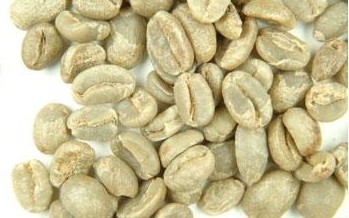
[product name] Kiwu 4 (Kivu 4)
Congo (D.R. Congo)
Washing
[baking] recommended baking degree: medium or deep baking
[cup review] has a unique dry aroma: fresh smell similar to soil; shallow flood has a bright sour taste, similar to Kenya, and a bitter taste similar to tobacco. The overall performance of deep baking is between Kenya and Mantenin in Indonesia.
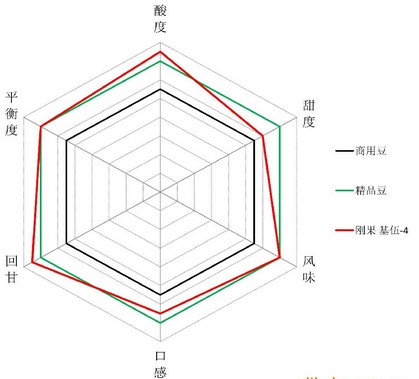
Kivu coffee is slightly acidity, but citrus acidity is slowly rising full, so the taste is clear and peaceful, coupled with floral, vanilla and erratic tobacco flavor, is a very refreshing and playful coffee.
About Congolese coffee.
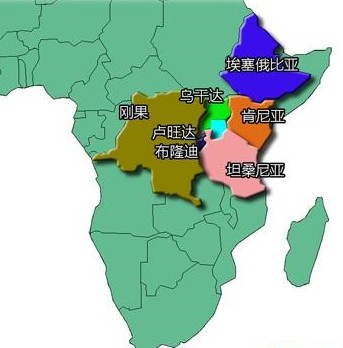
The Democratic Republic of the Congo (DRC), known as the Democratic Republic of the Congo (DRC), runs through the north of the equator, mainly in central Africa, adjacent to another Congo (Congo-Brazzaville) across the Congo River. The Democratic Republic of the Congo was once known as Zaire, the capital of Kinshasa. In Chinese, the word "Jin" of the capital was added to the name of the country to distinguish between the two countries.
The famous coffee in the Democratic Republic of the Congo is Kivu. It gets its name from Lake kivu on the border with Rwanda. In fact, there are two kinds of kivu in Congo: the western part is low-lying, which is not authentic kivu, while the eastern part is high-lying and close to Lake kivu, producing authentic Kivu-4 coffee.
Due to the continuous civil war in Congo, the production and treatment of coffee beans have been taught, so although it is bred by Lake Kivu, the quality of coffee is generally worse than that of Rwandan coffee on the east coast.
This year, Congo Kim joined the East African Fine Coffee Association (Eastern Africa Fine Coffee Assosiation) in East Africa, with a view to further improving the output and quality of exported coffee.
About African boutique coffee
It is well known that coffee originated in Ethiopia, the earliest Arabica variety, while Robusta originated in Uganda, both of which are from Africa. As the hometown of coffee, Africa not only has many excellent coffee varieties, but also is still one of the three largest coffee producing areas in the world. The flavor and taste of African coffee is the most complex and excellent; due to the appropriate altitude and climate, African coffee tastes better than coffee from South America and Southeast Asia; this is an unofficial evaluation from the International Coffee Organization (ICO). However, due to poverty, coupled with deficiencies in publicity and brand building, backward coffee cultivation and harvesting technology and lack of government regulation, the export volume and popularity of coffee beans in Africa are far lower than those of coffee producers in South America and Southeast Asia, led by Brazil. Over the last decade, several major African exporters (such as Ethiopia, Kenya, Uganda, Tanzania and Rwanda) have stepped up regulation of coffee production and trade, reducing the circulation of raw coffee beans and bringing better quality African coffee beans to the world by improving planting, harvesting and storage technologies. Better quality has promoted the brand construction of boutique coffee in various countries. Nowadays, coffee beans such as AA (Kenya AA) of Kenya, Yirgacheffe of Ethiopia, Harald (Harar) and Bujisu AA (Bugisu AA) of Uganda have become the ranks of boutique coffee with world reputation; it is believed that more and more African coffee varieties will be recognized by people and join the ranks of world boutique coffee.
Important Notice :
前街咖啡 FrontStreet Coffee has moved to new addredd:
FrontStreet Coffee Address: 315,Donghua East Road,GuangZhou
Tel:020 38364473
- Prev
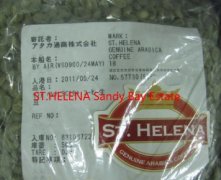
St. Helena Island Sandy Bay Estate2011 coffee beans
[manor]: Sandy Bay Estate [country]: St. Helena Island [area]: Sandy Valley Bay area Sandy Bay [producer]: Sandy Bay Estate [season]: 2010Unix [defect Standard]: n / A [mesh]: 18 mesh [Variety]: green Top bourbon Heirloom Yemen Seedstock: Green-Tipped Bourbon [other]:
- Next
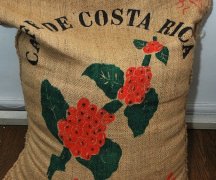
Costa Rican Raminita coffee beans
Product name: La Minita, Costa Rica background: La minita Manor plants and selects coffee for its customers in a careful and responsible spirit. After screening and elimination from a total of 832000 pounds of raw beans, it finally selects 210000 pounds of the best quality coffee beans for consumers, which means that La minita only selects about 25% of the raw coffee beans in the process.
Related
- Guji coffee producing area of Guji, Ethiopia: Humbela, Shakiso, Wulaga
- What is the most expensive variety of Qiloso in BOP multi-variety group?
- How to store the coffee beans bought home?
- Why are Yemeni coffee beans so rare now?
- Ethiopian Sidamo all Red Fruit Sun Sun Santa Vini Coffee beans
- SOE is mostly sour? What does it mean? Is it a single bean? what's the difference between it and Italian blending?
- Is Italian coffee beans suitable for making hand-brewed coffee?
- How to choose coffee beans when making cold coffee? What kind of coffee beans are suitable for making cold coffee?
- Just entered the pit to make coffee, what kind of coffee beans should be chosen?
- Can only Japan buy real Blue Mountain Coffee? What are authentic Jamaican Blue Mountain coffee beans?

